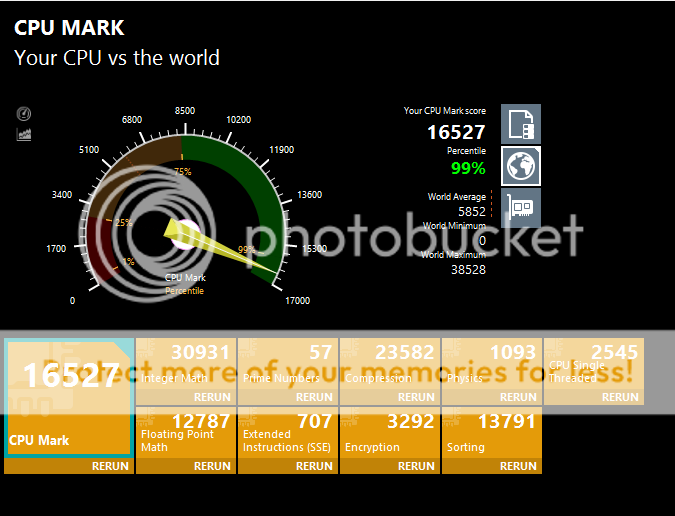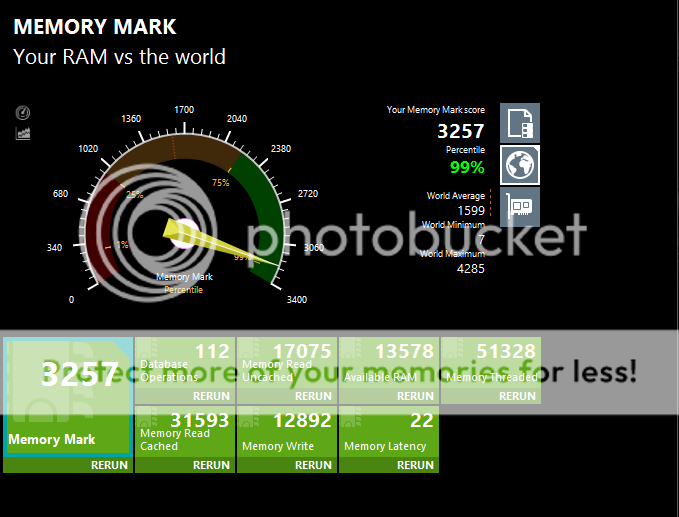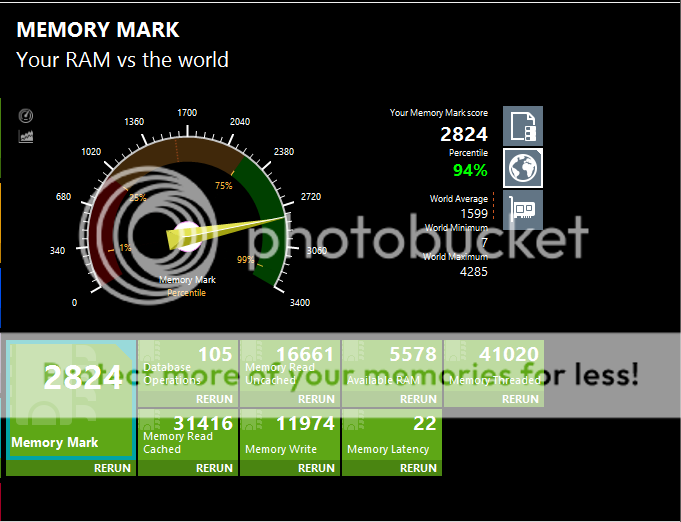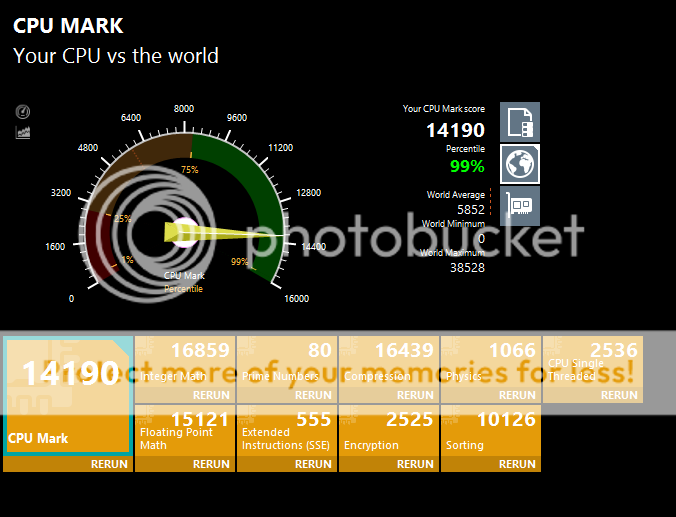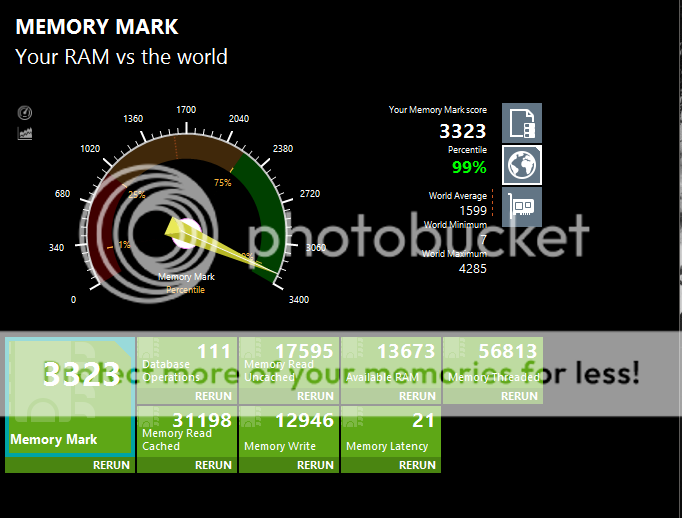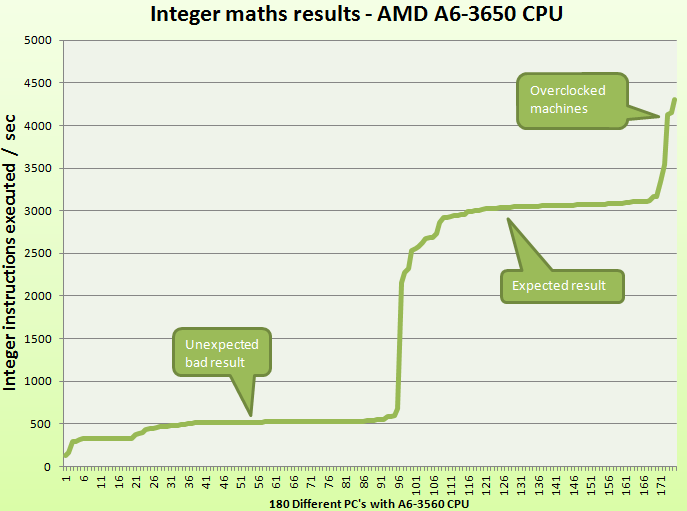coercitiv
Diamond Member
- Jan 24, 2014
- 7,463
- 17,821
- 136
The following SS contains 2 data sets, both from a Haswell i7 @ 3.4Ghz with DDR3 1600 CL11. The first set contains default values, the second set was run with the benchmark program set with restricted affinity on logical cores 0-2-4-6.Can someone with i7 or i3 run the test with HT disabled?

Anybody who can actually disable HT is welcome to come with more appropriate results.


